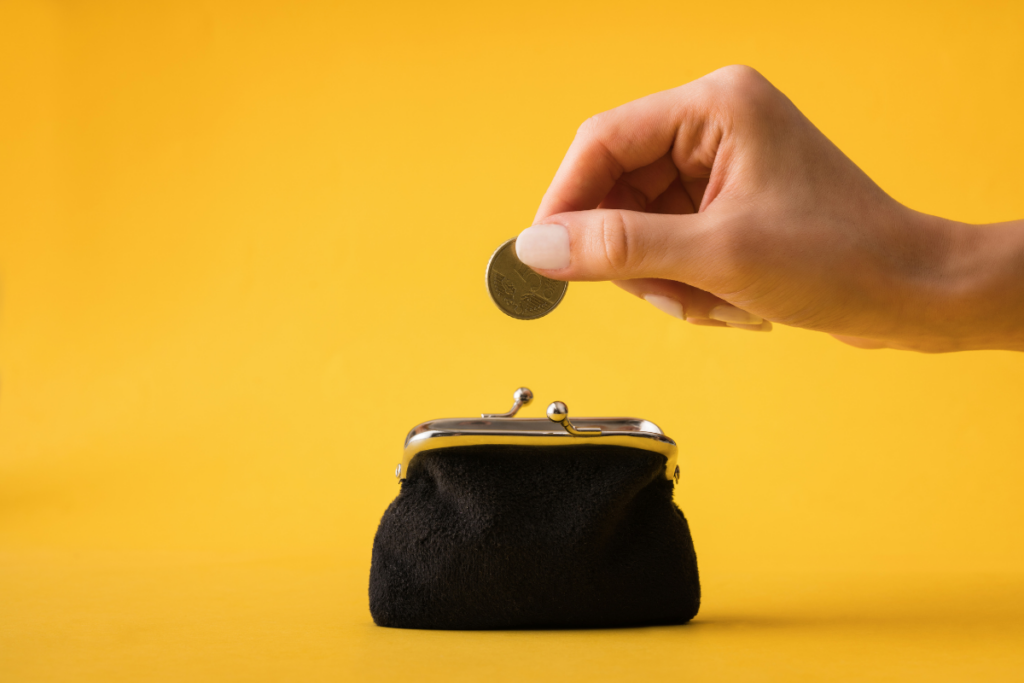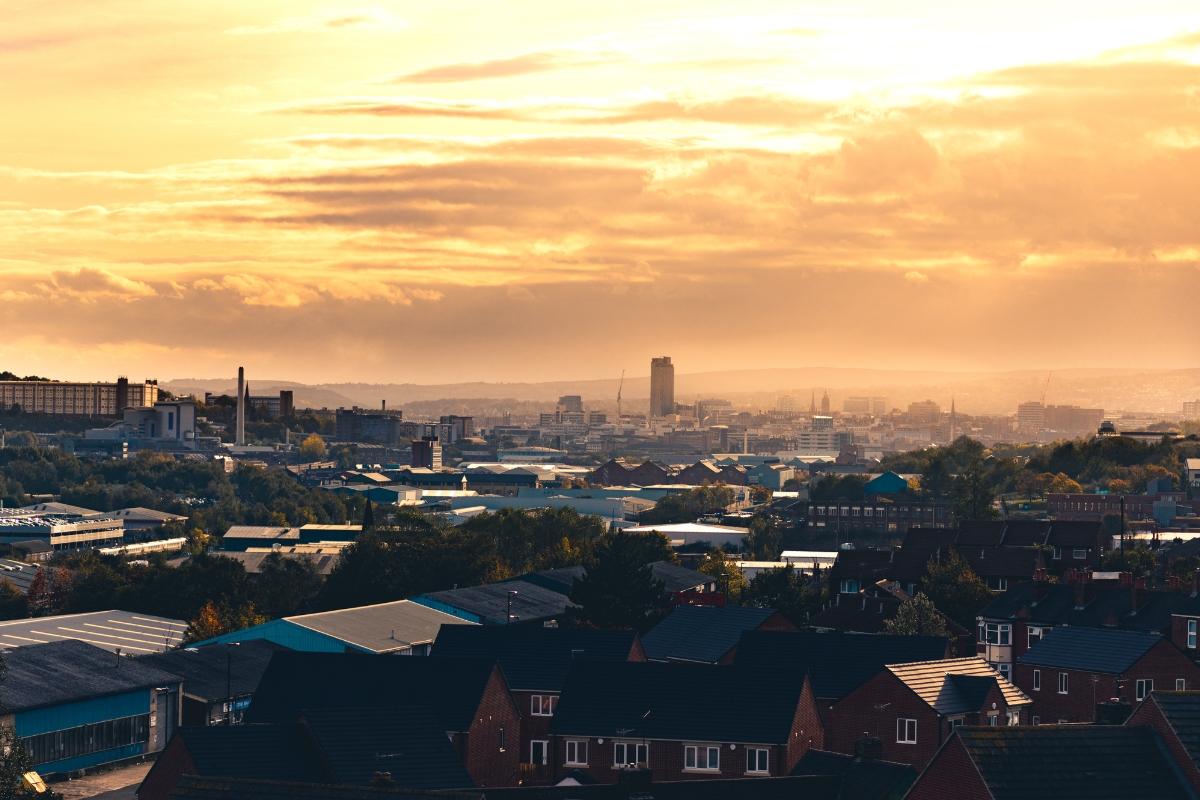Buying a house for the first time is an important milestone. It should also be an exciting one, yet the reality is that many first time buyers feel overwhelmed with knowing where to start. Fortunately, getting on the property ladder has been simplified with our guide to buying your first home.
Find how to search for properties, when to make an offer, and other first-time buyer tips in our 10 steps to buying a house for the first time.
1. Save a deposit

The first step to buying a home for the first time is to make sure you have the funds. It’s probably the least fun part, but saving up a deposit is essential. Most banks ask for 10% of the property’s asking price, however as a 1st time buyer, you may be able to secure a mortgage with a 5% deposit. This means for a property valued at £200,000, you would need a £10,000 deposit.
One of the best tips for a first time home buyer is to look at opening a Lifetime ISA (LISA). It provides a 25% bonus on savings, where you can put in up to £4,000 each year. This means if you manage to save £2,000 a year in your Lifetime ISA, the government will top it up by £500. Although LISAs can be beneficial, it’s important to remember that you can be penalised if you withdraw the money for reasons other than buying your first home.
Another tip is that if you plan to buy your first home with another first-time buyer, you can both open up a Lifetime ISA and both get the government bonus!
2. Use a mortgage calculator
The next stage is to find out how much you can borrow. There are lots of online mortgage calculators, which can provide you with an estimate. This should help you determine the property value you can afford, or whether you need to save more first. You could also try speaking to your bank to get a quote, which is likely to give you a more realistic figure.
Ultimately, the amount you can borrow for a mortgage will depend on your deposit, your annual salary, and any other outstanding debts you might have. Your monthly mortgage payments will usually be calculated by your:
- Deposit amount
- Property value
- Length of mortgage
- Interest rate
It may sound a bit daunting, but figuring out the finances can provide first time buyers with a realistic understanding of how much they can afford.
A top tip when buying your first home is to account for hidden costs. These include mortgage fees, legal work, estate agent fees, insurance. Fortunately, first time buyers are exempt from paying Stamp Duty on properties up to £425,000, and only pay 5% on properties up to £600,000.
3. Spend time in the area you want to live in
One of the most important tips for a first time home buyer (or for any buyer wanting to buy a property in a new area) is to spend some time there – it’s the best way to ensure that it’s the area you want to live in. Your first home may not be your forever home, but circumstances can change so it’s a good idea to think about the future when considering what area to live in.
Considering factors such as schools, amenities, public transportation and proximity to the city centre or workplace is key here. Another common tip when buying a home outside of where you know is to drive around there at night. You’ll have a better feel for the neighbourhood and what it offers. You could also do a bit of research on house prices in that area and property value trends, which a local surveyor may be able to help with.
4. Get a Mortgage Agreement in Principle
Agreement in Principle (AIP) is an estimate of how much you could borrow from a mortgage lender. It’s sometimes required by estate agents before viewing properties, but some will show you around without one. You may be more likely to need an AIP if you’re a first-time buyer as it reassures estate agents that you’ll be able to buy your first home. Having an AIP ready is also beneficial to you, as it means you’ll be able to make an offer once you find the right property.
There are two ways of getting a Mortgage Agreement in Principle. Many brokers will be able to provide you with one immediately, or you can ask a mortgage lender to provide one, which may be easier if it’s a lender you intend to borrow from. You’ll need to provide your personal details, past addresses and financial income and outgoings. The broker or lender will then run a credit search to determine your eligibility.
Agreement in Principles are usually completed quickly, and last for 90 days – this is something to bear in mind, as you may need to get a new one if you want to spend longer looking for your first home.

5. Find properties
This is generally the best part of buying a home for the first time. It’s where you search through all the available properties and try to picture yourself living there. You can do this online through sites such as Rightmove or Zoopla. Both of these are great places to start as they list large volumes of properties. Rightmove provides a useful Google map, which allows you to see where properties are located easily, whereas Zoopla has handy historical data, showing the listing history and relevant market statistics for each property.
Searching for properties online is usually a good place to start. However, first-time buyers may want to consider visiting an estate agent too when buying their first home. This could be a useful way of asking any questions you might have, as well as getting help finding properties within your budget. By visiting a local estate agent, you might also be able to find out about properties for sale that haven’t been advertised yet.
Arguably, the best approach when searching for properties is to look across different agencies and different platforms. That way, you’re more likely to find the right first home for you.
Tip: If you plan to use the government’s 95% mortgage scheme for first-time buyers, you need to check that the property you intend to purchase is eligible.
6. Make an offer
After you’ve found the right property, it’s time to make an offer. If you’re buying a home for the first time, it’s normal to be nervous at this stage. Putting an offer in on a property makes everything seem that much more real. The good news is that for anyone wondering how to buy a home, making an offer is usually one of the most straightforward stages.
Before you make an offer, you need to have your Agreement in Principle (AIP). If this has expired, you’ll need a new one to move forward. You then need to decide how much your offer will be. The asking price of a house is a reflection of what the seller wants, but it doesn’t mean that you can’t get the property for less.
In principle, it’s a good idea to start off with a low offer, as you can usually increase it if there are other buyers with higher offers in. However, if bids are sealed, you won’t be able to know how much other people are offering or ‘bidding’ on the house. Therefore, you might need to think about how much you want the property and how much you are prepared to pay for it.
Ultimately, your offer needs to be realistic. It needs to be something you can actually afford. An AIP usually tells you how much you can borrow, so try not to steer away from this.
7. Apply for mortgage
Many first-time buyers wonder whether you make an offer or apply for a mortgage first. Typically, you apply for a mortgage after your offer has been accepted. As you’ll have your Mortgage Agreement in Principle, you should know what to expect from borrowers. It’s still a good idea to shop around in case you find a better offer, but if you’re happy with the offer in your Mortgage Agreement in Principle you can choose to go back to the original lender for a formal mortgage offer.
First-time buyers are able to use the government’s 95% mortgage scheme on eligible properties up to £600,000. This allows you to pay a 5% deposit and obtain a 95% mortgage from participating lenders. However, if your deposit is smaller, you may not be able to access some of the cheaper mortgage deals.
Finding a mortgage when buying your first home can be daunting, but as a guide it’s a good idea to think about the following points:
Mortgage type
If it’s your first time buying a house, it’s important to consider mortgage options for first time buyers.A fixed-rate mortgage typically lasts for three or five years; however, many fixed-rate offers fall outside of this too. For the specified time, your mortgage payments will be the same, which means that mortgage interest spikes won’t affect you. However, you also won’t benefit if interest rates drop, and you may have to pay a heavy sum if you want to exit your mortgage deal before the fixed-rate period has finished.
On the other hand, a variable mortgage rate moves with the market. When interest rates rise, your monthly mortgage payments will too, and vice versa. Tracker mortgages are a type of variable mortgage, which generally moves in line with the Bank of England’s base rate. These are usually a good idea for first-time buyers who opt for a variable mortgage rate, as they provide a degree of certainty when compared with SVRs and are often the cheapest option.
A standard variable rate (SVR) mortgage differs as it’s the rate set by your lenders, making it difficult to predict how much you’ll be paying from month-to-month.
Mortgage rates
Once you’ve decided on the type of mortgage, it’s wise to shop around to find different mortgage rates. If you are using the 95% mortgage scheme for first-time buyers, you will be able to search exclusively for these on many mortgage comparison sites. Try Habito, Money Supermarket, Go Compare or Compare the Market, or get a quote directly from lenders.
8. Get a home survey
Not everyone gets a home survey, but it’s often one of the most important steps to buying a home. It usually takes place while your offer is subject to contract. An accredited surveyor will visit the property to
establish whether it’s in good condition, or if there are any defects or problems. If you’re a first-time buyer, seeking expert advice from an independent surveyor can help you gain a true outlook on your first home.
If your home survey reveals the property is in good condition, you can rest assured and move forward with the purchase. In some cases, a property survey may reveal that a home needs significant repair work. Therefore, it’s worth thinking about whether you can afford additional costs and if the property is worth buying. Moreover, if you obtain a home survey from a licensed surveyor, such as RICS Chartered Surveyors, you may be able to use the survey report to renegotiate the asking price.
There are many different types of home surveys. The level of survey you need will depend on the age, size, and characteristics of your property. It’s always best to speak to a trusted surveyor to get advice about which type of home survey is best for you. If you would like more information or to obtain a quote for a home survey, you can contact CJ Bloor.
Getting a survey can provide you with reassurance about your new home, so it’s always worth commissioning one.
9. Exchange contracts
Once your offer has been accepted and you’re happy with the property, the final stage before moving into your new home is exchanging contracts. This is the part of the process where the sale becomes legally binding for both parties. Once the contracts are signed, a copy is issued to both the seller and buyer, and the money for the deposit is transferred.
Generally, the time between exchanging contracts and completion takes from one to three weeks. This usually depends on the chain, however as a first-time buyer, this should speed up the process. Completion occurs when the remaining balance for the payment of the property and ownership is transferred to the buyer. Once this is done, you are no longer a first-time buyer, but a homeowner!
10. Moving in
Of course, the last thing to do when buying your first home is to actually move in! This can be stressful, but it’s the journey to making the property your home. It might be worth considering help from removal companies or reaching out to family friends to lend a hand.
The process of buying a home for the first time may seem complex at first, but it can be straightforward with these steps. From discussing mortgage options to first time buyers tips, these 10 steps aim to simplify the journey.
Buying a house for the first time should be enjoyable, especially if you know it’s the property for you. One way to be sure of this is through having a surveyor inspect the property to confirm it’s in good condition.
Get a RICS Home Survey Quote From CJ Bloor Today
CJ Bloor is here to provide you with the expert guidance and resources necessary when it comes to getting a RICS home survey quote. Our expert team will supply you all the information needed so that your decision-making process is informed and straightforward.
Don’t wait any longer to get a quote from us, or contact one of our RICS accredited surveyors for helpful advice and more information about how we can support first time buyers.




